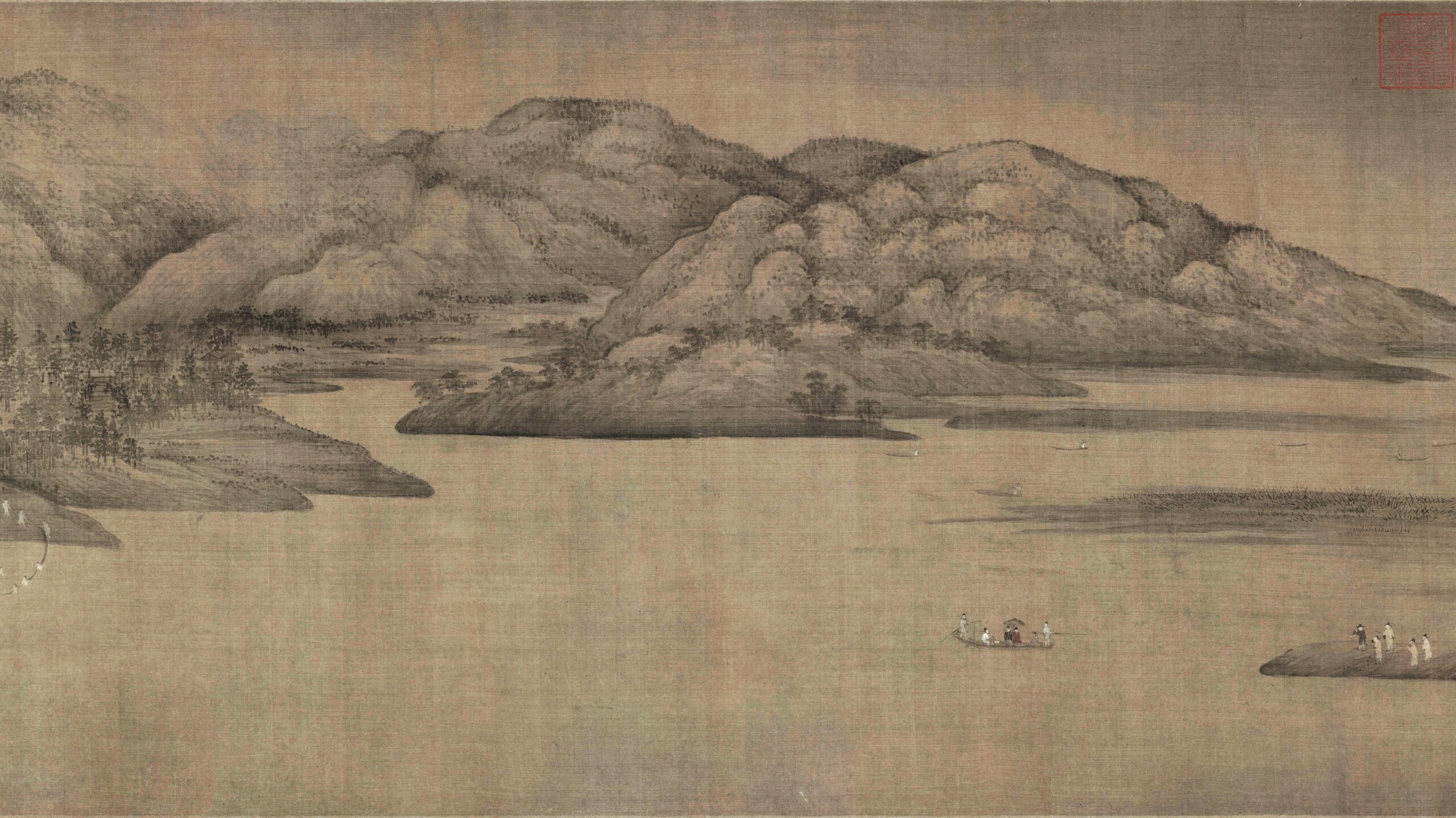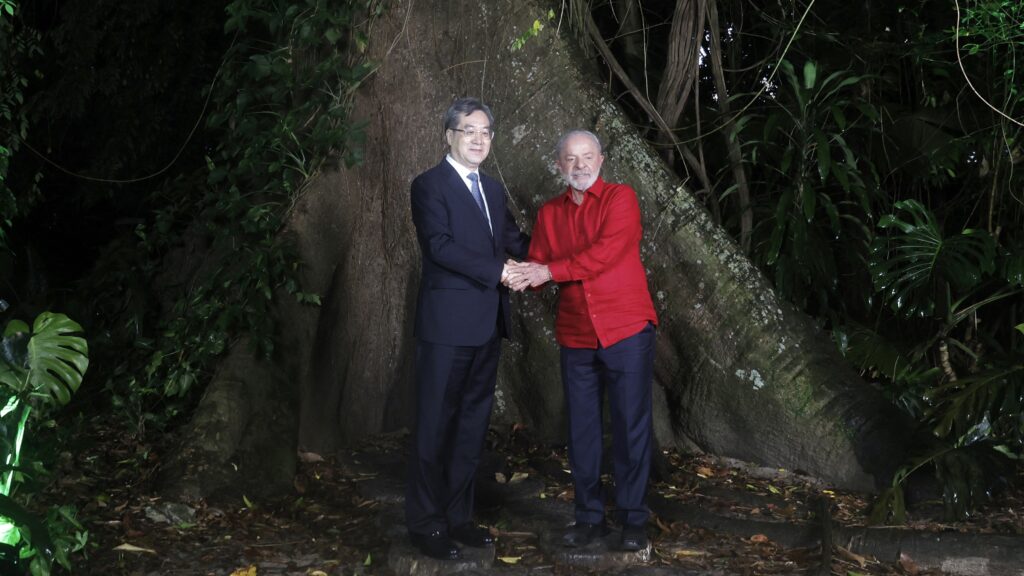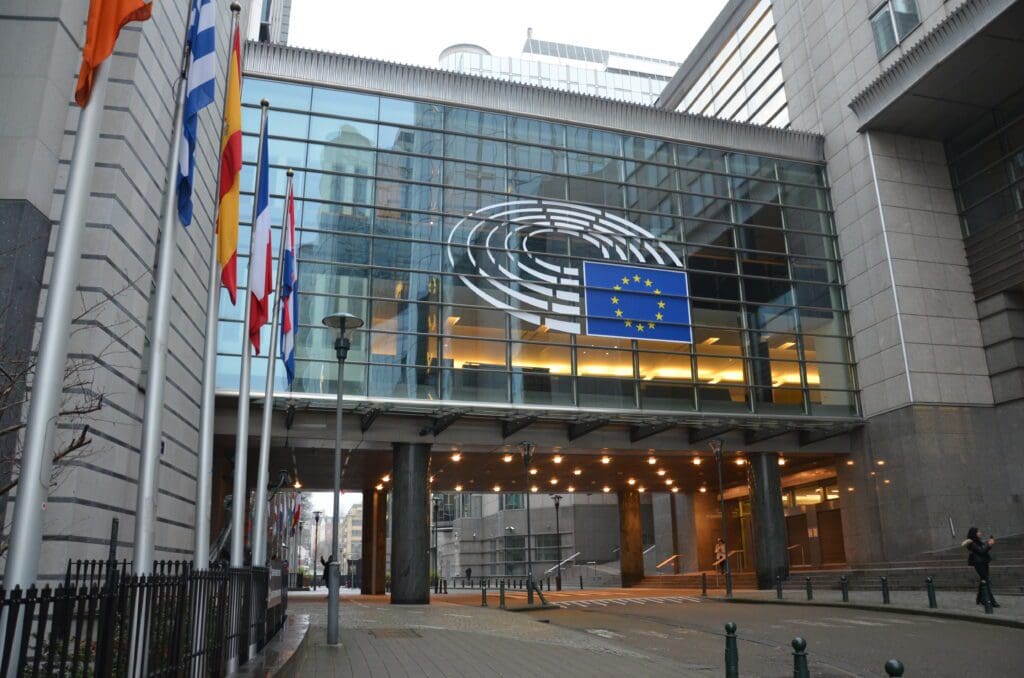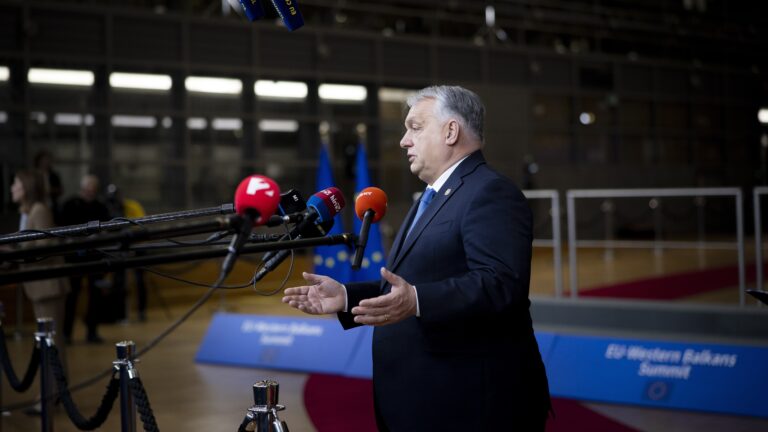This article was originally published in Vol. 4 No. 4 of our print edition.
The most significant challenges facing Western nations today are arguably civilizational in nature and scope. They are not the result of imposition by any external enemy or force, nor of the typical fluctuations of economic cycles, but the product of deeper internal problems within the collective structure of these societies. They include problems in the domains of cultural and moral value systems, civic order and societal cohesion, family structures and intergenerational transmission mechanisms, and elite leadership capacity and legitimacy. Moreover, these challenges are civilizational in that they pose a potentially existential threat to the continuation of our civilization as a distinct and particular historical people, living culture, and polity.
In this view, the Western world (including the United States, Europe, and the Anglosphere), despite national differences, is notably united in generally sharing many of the same core civilizational challenges. These include social atomization, loneliness, low social trust, mental illness, drug addiction, and proliferating ‘deaths of despair’; persistent structural economic weaknesses, including deindustrialization and the hollowing out of middle-class economic security; loss of control over national borders and the normalization of illegal mass migration, as well as an inability to assimilate migrants into existing cultures; rising crime, homelessness, vagrancy, and political violence; a breakdown in gender norms and relations between the sexes along with a collapse in family formation and fertility rates, driving a worsening demographic crisis; and a significant collapse of public trust in major institutions, as well as intensifying political divisions.
In particular, the West has in recent years been riven by the sociocultural and political upheaval produced by the emergence and rapid proliferation of an ideology that foregrounds extreme attention to issues of identity (including racial, gender, and sexual identity) and victimhood, a morality of collective ‘social justice’, and a revolutionary objective of universal liberation from historical ‘oppression’. This ideology, an outgrowth of progressive left-liberalism, is today colloquially known as ‘Woke’ in the West and ‘Báizuŏ’ (‘White Leftism’ or the ‘White Left’) in China. It features what can be described in sociological terms as an ‘inversion of values’, or the subversion and reversal of traditional moral beliefs, strictures, and value judgements. This inversion means that the ideology manifests as distinctly oikophobic (fear of and hostility towards one’s own homeland and culture) and ultimately antagonistic to Western civilization itself.
Taken together, these problems paint a picture of a civilization facing internal sociocultural challenges serious enough to risk steep decline. It is perhaps no surprise, then, that many geopolitical analysts in the West prefer to largely ignore such issues, tending instead toward a tunnel-vision focus on economic and security affairs.
Already viewing geopolitics through a more holistic lens of what might be called ‘civilizational competition’, Chinese analysts, in contrast, have no similar misconceptions. In fact, there is reason to believe that the leadership of the Chinese Communist Party (CCP) has identified these cultural or civilizational struggles as central and potentially determinative factors in China’s long-term strategic competition with the West.
Western cultural turmoil presents an image that slots easily into a broader Chinese view, as expressed by CCP General Secretary Xi Jinping’s frequently used slogan asserting that the central fact of the twenty-first-century world is that the ‘East is rising, the West declining’. Though this statement is often taken by Western observers to refer purely to relative economic weight and the balance of power, assuming so would be a significant mistake. In assessing and comparing overall ‘comprehensive national power’, Chinese analysts generally make no separation between economic, military, or technological strength and factors like political stability or social unity.1
It has become common in Chinese academic and official discourse to describe China not merely as a country, but as a ‘civilization state’ that approaches the world as such. This framing naturally applies to assessments of other civilizations, not just China’s own. It also informs and dovetails with Beijing’s view that China is engaged not only in geopolitical competition but also in a much broader struggle between ideological world-systems, with Chinese socialism facing down a terminally declining but still aggressive Western liberalism. It is in this context of relative evaluation of civilizational and ideological rivalry that we are most likely to see Chinese observers judging the present and future of the West’s internal problems.
Thus, we can find Peking University scholar Jiang Shigong, for example, writing that from his perspective, ‘the core division within the United States at present is between the old liberalism and the new liberalism’, with the distinction being, respectively, ‘liberalism with civilizational roots and liberalism without civilizational roots’. He notes with approval that the ‘postmodernism, deconstructionism, and the decentring theories of the cultural left, which aim to destroy the ideological authority of the [liberal-democratic] world empire from within [are] undoubtedly destroying the civilizational foundations’2 of the West—and therefore its global power and influence.
Similarly, Chinese historian and public intellectual Xu Jilin observes that ‘in the United States and Europe, identity politics has become an overpowering political movement’ and that its main weapon, ‘political correctness’, has ‘become overbearing and aggressive, and has evolved from maintaining order to purging history, provoking even deeper conflicts between ethnic groups.’ As a result, he says, ‘the entire political community has become fragmented and even confrontational’, rendering impossible the necessary civilizational possession of a ‘common political culture’ (here he cites the late Samuel Huntington). ‘If American[s] cannot find a new consensus on these issues’, he predicts, ‘the divide between left and right will continue to grow until it finally splits America apart.’3
Such Chinese observers often tend to see the West’s cultural and ideological turmoil both as reflecting and accelerating its decline and as a sign that it may no longer have the civilizational self-confidence and will to prosper and defend its system—or even, potentially, to survive. However, despite the open discussion of these issues by Chinese academics and think-tank analysts like those cited above, it is difficult to determine how much the views of such figures—or of broader public discussion—really influence China’s senior leadership. Fortunately for our purposes, there exists something of a Rosetta stone for deciphering how this kind of sentiment influences the thinking of Xi Jinping and the policy choices of the CCP today: the collected writings of Wang Huning.
Wang Huning and the Foundations of China’s Civilizational Strategy
It is difficult to overstate the influence of Wang. A top adviser to Xi, Wang is a former professor of international politics who spent more than two decades as China’s ‘Ideology Tsar’ as head of the CCP’s secretive Central Policy Research Office and is now serving his second five-year term on the party’s highest leadership body, the Politburo Standing Committee. Widely reported to be the brains behind the flagship policies of China’s past three successive top leaders (Jiang Zemin, Hu Jintao, and Xi Jinping)—including as progenitor of Xi’s ‘China Dream’, the Belt and Road Initiative, ‘Common Prosperity’, and ‘Chinese-style modernization’ plans—Wang is likely the world’s most influential living political theorist.4
Having become famously reclusive since leaving academia and entering the world of politics, Wang has published nothing under his own name besides routine official boilerplate for more than three decades. Nonetheless, many of the ideas he detailed in his past published work—particularly his 1991 book America Against America—remain so relevant to current trends and so seemingly applicable to explaining current policy choices by the Chinese state that it is possible to trace a direct connection between them and conclude that his core views have probably not changed significantly.
When Wang extensively toured the United States in 1988, he found it to be an ‘awe-inspiring material civilization’, yet also noted what he saw as deep cracks beginning to show in the American system.5 Observing widespread homelessness, drug use, crime, family breakdown, racial antagonism, and other ‘intricate social and cultural problems’, he pondered how these could arise and persist in such an entrepreneurial and materially abundant country. His conclusion: beneath the glamor of 1980s prosperity, America’s culture had been corrupted by a corrosive nihilism that had begun to subject the country to an ‘unstoppable undercurrent of crisis’.6
America’s root problem, Wang reasoned, was that it had embraced a radically individualistic liberalism that celebrated egotism, consumerism, and commodification while rejecting anything that could stabilize society, including any inheritance of the past. Above all, he wrote, the foundational unit of civilization, ‘the family, has disintegrated’ under this assault. The resulting ‘socially imposed loneliness’ of American life had made ‘dejection, loss, indecision, despondence, anxiety, and worry’ the new societal norm. At the same time, the combination of neurotic liberalism and expanding technocracy (produced by an overwhelming cultural faith in technological solutions) meant that the United States had become a ‘regulatory society’ and ‘regulatory culture’ in which ‘every area of social life is defined by certain regulations’ and administrative decrees. The result was ‘a sort of introverted and passive mentality’ that had begun to overtake American life.7
Overall, Wang concluded, ‘Nihilism has become the American way, which is a fatal shock to cultural development and the American spirit’. This was perhaps best illustrated at American universities, where he noted that this spirit was ‘facing serious challenges’ from a ‘younger generation [that] is ignorant of traditional Western values’ and has rejected Western civilization. Citing Allan Bloom’s book on the crisis of moral relativism, The Closing of the American Mind, he pondered how, if these nihilistic college radicals succeeded and ‘the value system collapses’, the American social and political system could possibly be sustained.8
This was a critique of cultural liberalism that would be familiar to almost any Western conservative today, but Wang filtered and interpreted it through a hard Marxist–Leninist lens, and when he returned home, he became a leading advocate of using authoritarian methods to ensure that the corrosive influence of Western liberalism was kept out of China.
‘Without Wang’s framing of civilizational competition, many of Xi’s actions might not seem to make much sense’
Wang feared that this would not be easy. As he put it in a 1994 essay, he believed that the post-Cold War world was seeing the rise of ‘a new international strategy [of] cultural expansionism [in which] Western countries are increasingly employing their cultural strength to constrain or influence world affairs and the process of internal developments of developing countries’. Convinced by the notion, as expressed by Francis Fukuyama, that Western liberalism was the ‘ultimate form of political rule’ and ‘the end point of progress of mankind throughout the world’, he believed that the West—led by the United States— would strive for global ‘cultural hegemony’ as a geopolitical objective. ‘Cultural hegemony constitutes the new form of hegemonic politics and power politics in today’s international relations’, Wang asserted. In short, the West would not permit China to resist liberalization and transformation by its cultural influence.9
‘[However, if] there is cultural expansionism’, Wang continued, ‘then there will be cultural conservatism [or] cultural sovereignty’ as its geopolitical counterpoint, which would become China’s position. ‘This struggle over cultural sovereignty’, he predicted, ‘will develop into an open struggle for political sovereignty’, making it an existential question of regime legitimacy. In other words, this clash over cultural sovereignty would become the core conflict between China and the West. Meanwhile ‘cultural conflicts or contradictions’ and the ‘conservative’ struggle for cultural sovereignty would increasingly roil the international relations of the world as a whole.10
Wang believed that China was particularly unprepared for this new conflict. As outlined in a 1988 essay, he perceived the combination of Chinese Marxism (and particularly the anti-traditional legacy of the Chinese Cultural Revolution) and the influence of liberal modernization as having stripped Chinese civilization of any solid historical, cultural, or moral identity. ‘[T]here are no core values in China’s most recent structure’, he warned, believing this relativism to be exceptionally dangerous. Already, China was ‘in a state of transformation’ from ‘a spiritually oriented culture to a materially oriented culture’ and ‘from a collectivist culture to an individualistic culture’, echoing Western liberalism.11
‘Today’s world’, Wang argued, ‘is one…of comprehensive competition between states in the political, economic, cultural, military, and [even] lifestyle domain’, and ‘[t]o be defeated or left behind in this competition will mean backwardness and poverty’.12 China urgently needed a new strategy to prevail in this arena of comprehensive civilizational competition: a ‘neo-conservative’ project to ‘create core values’ anew for the country by engineering a cultural synthesis of traditionalist Chinese Confucian values and Marxist socialist values, a ‘neo-authoritarian’ project to further centralize a strong state capable of resisting liberalization and maintaining social and political order, and a neo-isolationist project to protect China from Western liberal cultural influence and prepare it for intense global ideological competition.13 It is this strategic project that has shaped Beijing’s policies for more than a decade.
Fortress China and the Global Culture War
When Xi took power in 2012, he seems to have found that Wang’s ideas aligned with his own. Following the recent turmoil of the Arab Spring and its attendant revolutions against authoritarian regimes, he entered office already attuned to the notion that Western influence presented an imminent threat to the stability of the CCP. Moreover, China had in his view become a civilization threatened by decadence and weakness. He appears to have therefore embraced and elevated every element of Wang’s strategy with a level of zeal shown by none of his predecessors. He moved quickly to centralize power in his own hands, significantly strengthening the role of the state within China’s economy and society, as well as the role of the party within the state; he revived the role of Marxist ideological education and imposed stricter controls on internal discourse. He also adopted a more assertively anti-Western foreign policy and made developing economic and technological ‘self-reliance’ vis-à-vis the West a cornerstone of his policy platform to strengthen China.
Without Wang’s framing of civilizational competition, many of Xi’s actions might not seem to make much sense. For instance, beginning in late 2020, Xi launched a wide-ranging regulatory crackdown targeting many of China’s most profitable industries, including its booming internet technology sector. New data and labour regulations were issued, apps banned, and IPOs canceled, and some tech CEOs, such as Alibaba’s Jack Ma, were even detained or otherwise disappeared from public view for months. Whole industries were saddled with heavy constraints such as, for example, the strict limits that were imposed on both the publication and consumption of video games; others, such as the private tutoring and digital education sector, were almost entirely wiped out by state decrees essentially overnight. These actions helped to plunge the Chinese private sector into a state of uncertainty from which it has taken years to recover.
How should we understand this? If Xi’s only goal were to overtake the United States in economic size and technological strength, then one would assume that his logical priority would be to maximize the innovative dynamism of China’s tech sector, its attractiveness to investment, and the country’s overall rate of growth. Explaining Xi’s rationale becomes much easier when one realizes that his goal is a strong China, over and above just wealthy consumers and a rich Chinese economy and that this strength, in his view, requires that Chinese culture be purified of malign influences. Those sectors and industries targeted so far found themselves in the crosshairs in part because they were seen to be promoting exactly the kind of corrosive social and cultural problems that Wang had identified in liberal America.14
Hence, China’s youth have been restricted from imbibing the ‘spiritual opium’ of video games for more than three hours per week; food delivery apps, plastic surgeons, and speculative finance platforms have been circumscribed; and media promoting ‘vulgar internet celebrities’, lascivious lifestyles, and effeminate pop stars have been censored, all to ensure that, as one article published by state media put it, ‘the cultural market will no longer be a paradise for sissy stars, and news and public opinion will no longer be in a position of worshipping Western culture’, lest the ‘young generation lose their toughness and virility’ and China ‘fall…just like the Soviet Union did.’15
Alongside this crackdown, Xi has made a parallel effort to inspire ‘unwavering cultural confidence’ within the party and the Chinese people. This has been done in part by moving—just as Wang proposed—explicitly to ‘integrate the basic tenets of Marxism with China’s…fine traditional culture’, including elements of Confucianism, familial piety, and patriotic pride in the nation’s past achievements. ‘This integration is the most important tool for the party to achieve its success’, Xi has said, describing it as essential to ‘national unity’.16
Both sides of this cultural campaign are clearly also deeply influenced by Xi’s determination to advance what he has labelled a ‘total national security paradigm’ integrating both ‘traditional’ and ‘non-traditional’ security concerns. The latter, Xi has often pointed out, includes ‘cultural security’, meaning that the CCP considers unwanted Western cultural influences to be an outright national security threat.17
To understand just how seriously the CCP takes this threat, it is necessary to recognize that the party sees itself as engaged in a global ideological struggle and that Xi has described this ‘intensifying contest of two ideologies’ as both ‘extraordinarily fierce’ and ‘a matter of life and death’. Xi made a point of asserting this view only months after coming to power, in a speech in which he warned that ‘Western hostile forces’ were intent on ‘Westernizing and splitting up China overtly and covertly’ through the ideological infiltration of the ‘so-called universal values’ of liberalism. The objective, he said, is ‘to vie with us [on] the battlefields of people’s hearts’ in order ‘to overthrow [China’s] socialist system.’18
This is one of Xi’s most consistently and fervently maintained beliefs. Western enemies ‘have not for a moment ceased their ideological infiltration of China’, he declared in 2016. He has even warned other leaders, such as the assembled heads of the Shanghai Cooperation Organisation in 2017, that they too are at persistent risk of Western-instigated ‘colour revolutions’ (regime change operations utilizing ideological mass mobilization).19
In this conflict, there is no clear distinction between ‘ideology’ and ‘culture’. As a key leaked 2013 internal party communiqué on ideological threats commonly known as ‘Document 9’ put it, Western liberals have come to believe that their political, cultural, and moral values are ‘universal and eternal [and represent] the prevailing norm for all human civilization’. Liberalism thus cannot tolerate the continuation of non-liberal societies anywhere, as their very existence would delegitimize the notion that liberalism is the universal destiny toward which all humanity is allegedly progressing. The liberal West is therefore intent on using ‘Westernization, splitting, and Colour Revolutions’ to undermine and topple the CCP in order to transform China into a liberal-democratic society. (This, it should be noted, is nearly an identical restatement of Wang’s theory that the West’s post-Cold War triumphalism would lead it to attempt to impose cultural hegemony across the world.) Hence Xi’s belief in the need for a ‘total national security paradigm’ that integrates cultural and political security.20
For Beijing, ideology and security have thus fused together within something like a global culture war. To prevail in this war, it appears necessary to fortify China against myriad threats, including direct incitement of protests and insurrections by geopolitical and ideological adversaries, as well as the deliberate infiltration of the country by malign values, ideas, and organizations intended to subvert and demoralize—but also against the homegrown development of cultural values and trends that risk inadvertently weakening society, even if only passively and over the long term. In a ‘life and death’ struggle, even simple decadence may prove lethal.
It is in this context that we should understand the expansion of China’s cultural campaign since around 2015 to crack down hard on left-liberal movements in general, including feminism (labelled a ‘rampant and toxic’ form of ‘gender antagonism’ and even a ‘cancer’ by some party organs) and LGBTQ ideology (a CIA plot to effect the ‘cultural castration’ of China, at least according to one propaganda department). These are seen not only as cultural memes that may tear at the domestic social fabric but also as ideological viruses deliberately introduced and encouraged by Western powers to divide and weaken China. Organizations deemed to be a part of such movements have been censored or shut down, and many activists have been arrested and silenced.21
For the same reasons, Xi has moved to dismantle the operations of foreign non-governmental organizations (NGOs) in China almost entirely. A 2017 law required that all NGOs register and receive approval from the government after demonstrating that they will ‘not endanger China’s national unity, security, or ethnic unity [or] harm China’s national interests [or] societal public interest’.22 The majority of foreign NGOs that once operated in China quickly shut up shop, and many domestic NGOs have ceased operations as well. In Beijing’s view, many such NGOs are far more likely to operate as vectors for foreign cultural and ideological subversion—or even the mobilization of regime change efforts—than as socially beneficial charities. However, despite its demonstrable level of paranoia about keeping liberalism and its cultural consequences out of China, Beijing also seems to see significant advantages and opportunities amid the trends of global liberalism.
The Red and the White
Broadly speaking, it is clear from its own messaging and actions under Xi that the CCP sees Western left-liberal ideas as profoundly corrosive and destabilizing not just to its own regime, but to the West as well. This makes the overall logic of Xi’s strategy relatively obvious: to fortify China to withstand and outlast the tides of global ‘late liberalism’ and then to wait and seize any advantages or opportunities that arise as liberalism’s own unstable ideological-cultural forces help to break down Western civilization and break apart the ‘liberal international order’ led by the United States.
For example, China already seems to have identified and seized upon the opportunities presented by one of those advantages in particular: the liberal West’s apparent ideological tendency to deindustrialize itself. The war in Ukraine has served to reveal the sheer depth of the West’s collapse in relative manufacturing capacity. After more than two years of war, the United States and Europe combined (together, more than 40 per cent of global GDP) have failed to match the capacity of Russia (representing less than 3 per cent of global GDP) to produce basic armaments and munitions such as artillery shells. Russia currently produces some 3 million shells per year, compared to 1.2 million by the United States and the EU combined.23
The ideological roots of this choice by the West—as China sees it—to accept industrial decline are today most obvious in the mix of green ideologies that form a core part of the dominant strain of Western left-liberalism, including intense alarm about climate change and the prioritization of policies pushing an abrupt and sweeping energy transition from fossil fuels to renewable sources. However, green ideology cannot be said to be the only force behind the trend toward deindustrialization by the West—at least from the viewpoint of CCP analysts, who note that Western liberalism has been trapped for decades in an accelerating trend toward ‘dematerialization’, of which a post-industrial economy that is increasingly dominated by services, software, finance, and administration is but one reflection.
In fact, ‘post-materialism’ is one of the traits of the ‘White Left’ most commonly remarked upon by Chinese observers. As the scholar Xie Tao puts it, ‘two decades of post-war economic prosperity led many young people in the West to place less importance on material stability than the expression of their values. [These] post-materialist values include personal liberty, freedom to choose one’s own sexual orientation, civil rights crusades, political correctness, protecting the environment, promoting human rights, and so forth.’24 This inward, almost therapeutic focus on self-expression has allegedly degraded the Western left’s awareness of and connection to material reality, including to fundamentals of national power such as manufacturing capacity or energy security.
In contrast, post-materialism is anathema to the hard materialists of the CCP. Descended from the old Marxist–Leninist left, with its disdain for intellectualized ‘bourgeois liberalism’, their perspective—what we might call that of the ‘Red Left’—is here nearly diametrically opposed to the White Left. Xi has repeatedly railed against the development in China of what he calls the ‘fictitious economy’ (including finance, speculative real estate, entertainment, and digital services—the same sorts of sectors that have been the targets of his crackdowns) and championed the ‘real economy’ (manufacturing, agriculture, logistics, etc.). ‘We must learn the lessons of some Western countries [that have] abandoned the real economy for the fictitious’, Xi has warned, declaring that ‘[w]e must recognize the fundamental importance of the real economy… and never deindustrialize.’25
Conclusion: Geopolitics and the Culture War
Deindustrialization is, however, but one example of how Beijing sees self-destructive ideas and cultural trends weakening the West’s capacity for strategic competition and potentially opening China’s global room for manoeuvre. We should keep in mind the bigger picture of China’s strategic position from this point of view: that Western left-liberalism is destroying itself together with Western civilization, along with those it has successfully infected, and if China can retain its civilizational strength and unity while others are destabilized and undermined, it will be in a position to capitalize on these ‘great changes unseen in a century’ (as Xi likes to put it), overtake the West, and reshape the international order.26
We should expect Beijing to double down on attempts to enhance its influence by portraying itself as a strong contrast to Western cultural and civilizational ills. Already, we can arguably see signs that this message is finding some success, including in the domestic and diplomatic choices of nations such as Hungary, India, the Arab Gulf States, or even Israel. It may behove Washington and Brussels to consider with greater attention why that is the case and how this could be countered.
Many analysts of international politics may have an incentive to think of the ‘culture war’ as an unserious distraction and to cast issues of cultural and ideological trends that stray uncomfortably close to the label as something beyond their purview and consideration. It is perhaps simpler, or at least more convenient, for them to frame international affairs as a nonpartisan and rarified realm of pure realpolitik in which such issues can be safely ignored. But this would be a serious mistake of analysis; at least some of the West’s competitors, including China, demonstrably do not think this way but rather make such issues a core part of their strategic calculus. Observation and assessment of Western cultural, ideational, and overall civilizational strength or decline already help to shape almost every aspect of China’s policies, both foreign and domestic. To ignore this would be to get China wrong and even to misjudge geopolitics as a whole.
Debates connected to the culture war, including even on such amorphous issues as the West’s slide into spiritual nihilism or the loss of its inner will, are directly relevant to international politics and even international security. Western strategic thinkers must take these issues into account just as analysts in Beijing or Moscow do. To do otherwise would be a potentially dangerous mistake. The CCP under Xi has made cultivating a civilizational ‘spirit of struggle’ central to its mission while judging the West’s loss of the confidence to defend itself to be a fact of historic significance. At least for the sake of their own defence, Westerners may want to explore the possibility of thinking along similar lines.
This essay is adapted from ‘China and the Global Culture War: Western Civilizational Turmoil and Beijing’s Strategic Calculus’, a report originally published by The Heritage Foundation (17 June 2024).
NOTES
1 ‘Comprehensive National Power’ was an official metric that combined military, political, economic, and cultural factors into an index that was published by Chinese state institutions from roughly the 1980s until circa 2009, after which public disclosure of such analysis and ranking of international power ceased.
2 Jiang Shigong, ‘World Empire and the Return of Civilization: Taking Seriously the Post-Cold War Discourse of Civilizational Revival’, talk given at the Fudan Institute on 8 June 2023, trans. David Ownby, www.readingthechinadream.com/jiang-shigong-on-world-empire-and-civilization.html, accessed 6 June 2024.
3 Xu Jilin, ‘Looking at American Political Correctness and Identity Politics Through the Lens of the Anti-Racist Movement’, 2019, republished June 2020, trans. David Ownby, www.readingthechinadream. com/xu-jilin-political-correctness-and-identity-politics.html, accessed 6 June 2024; ‘Xu Jilin, Liu Qing, Bai Tongdong, and Wu Guanjun Reflect on “Black Lives Matter”’, online dialogue organized by East China Normal University, 22 June 2020, trans. David Ownby, www.readingthechinadream.com/xu-jilin-et-al-black-lives-matter.html, accessed 6 June 2024.
4 N. S. Lyons, ‘The Triumph and Terror of Wang Huning’, Palladium (11 October 2021), www.palladiummag.com/2021/10/11/the-triumph-and-terror-of-wang-huning/, accessed 6 June 2024.
5 Wang Huning, ‘Uncertainty Created by America’, trans. Leah Holder, Center for Strategic Translation, October 2023, www.strategictranslation.org/articles/america-against-america, accessed 12 June 2024. Originally published in Wang Huning, America Against America (Shanghai Wenyi Chuban She [Shanghai Humanities Publishing Co.], 1991), 1–9.
6 Lyons, ‘The Triumph and Terror of Wang Huning’.
7 Lyons, ‘The Triumph and Terror of Wang Huning’; and Tanner Greer, ‘American Nightmares: Wang Huning and Alexis de Tocqueville’s Dark Visions of the Future’, The Scholar’s Stage (28 March 22024), https://scholars-stage.org/american-nightmares-wang- huning-and-alexis-de-tocqueville-dark-visions-of-the- future/, accessed 13 June 2024.
8 Lyons, ‘The Triumph and Terror of Wang Huning’.
9 Wang Huning, ‘Cultural Expansion and Cultural Sovereignty: A Challenge to the Concept of Sovereignty’, Reading the China Dream (1994), www.readingthechinadream.com/wang-huning-ldquocultural-expansion-and-cultural-sovereignty.html, accessed 6 June 2024.
10 Wang, ‘Cultural Expansion and Cultural Sovereignty’.
11 Wang Huning, ‘The Structure of China’s Changing Political Culture’, Reading the China Dream (1988), www.readingthechinadream.com/wang-huning-ldquothe-structure-of-chinarsquos-changing-political-culturerdquo.html, accessed 6 June 2024.
12 Greer, ‘American Nightmares’.
13 Lyons, ‘The Triumph and Terror of Wang Huning’.
14 Other issues in addition to cultural views, such as concerns about data security and technological self-reliance, often also played a role in determining which sectors were targeted.
15 ‘China Cuts Children’s Online Gaming to One Hour’, BBC (30 August 2021), www.bbc.com/news/technology-58384457, accessed 6 June 2024; ‘Everyone Can Feel That a Profound Change Is Under Way!’, Xinhua (29 August 2021), www.xinhuanet.com/politics/2021-08/29/c_1127807097.htm, accessed 6 June 2024.
16 See Shi Jiangtao, ‘China’s Xi Jinping Hails “Uninterrupted” Cultural Continuity for Powering Nation’s Rise’, South China Morning Post (3 June 2023), www.scmp.com/news/china/politics/article/3222855/chinas-xi-jinping-hails-uninterrupted-cultural-continuity-powering-nations-rise, accessed 6 June 2024; ‘Xi Jinping, Man of Culture’, Xinhua (1 February 2024), https://english.news. cn/20240201/8e74c32a0c5748ed9c0f9e53846b5224/c. html, accessed 6 June 2024.
17 See Jude Blanchette, ‘The Edge of an Abyss: Xi Jinping’s Overall National Security Outlook’, China Leadership Monitor (1 September 2022), www.prcleader.org/post/the-edge-of-an-abyss-xi-jinping-s-overall-national-security-outlook, accessed 6 June 2024.
18 Xi Jinping, ‘Speech to the National Conference on Propaganda and Ideological Work, 19 August 2013’, leaked and published by China Digital Times (4 November 2013), https://chinadigitaltimes.net/chinese/321001.html.
19 Nathan Levine, ‘A Clash of Worldviews: The United States and China Have Reached an Ideological Impasse’, Foreign Affairs (30 August 2023), www.foreignaffairs.com/china/clash-worldviews-united-states-ideological-impasse, accessed 6 June 2024.
20 ‘Document 9: A ChinaFile Translation’, ChinaFile (8 November 2013), www.chinafile.com/document-9-chinafile-translation, accessed 7 June 2024.
21 See Patricia Thornton, ‘Who’s Afraid of Chizuko Ueno? The Party’s Ongoing Counteroffensive Against Feminism in the Xi Era’, China Leadership Monitor (30 November 2023), www.prcleader.org/post/who-s-afraid-of-chizuko-ueno-the-party-s-ongoing-counteroffensive-against-feminism-in-the-xi-era, accessed 7 June 2024.
22 National People’s Congress Standing Committee, ‘Law of the People’s Republic of China on Administration of Activities of Overseas Nongovernmental Organizations in the Mainland of China’, adopted 28 April 2016; effective 1 January 2017, www.chinafile.com/ngo/laws-regulations/law-of-peoples-republic-of-china-administration-of-activities-of-overseas, accessed 7 June 2024.
23 Julian E. Barnes et al., ‘Russia Overcomes Sanctions to Expand Missile Production, Officials Say’, The New York Times (13 September 2023), www.nytimes.com/2023/09/13/us/politics/russia-sanctions-missile- production.html, accessed 7 June 2024; Katie Bo Lillis et al., ‘Exclusive: Russia Producing Three Times More Artillery Shells than US and Europe for Ukraine’, CNN (updated 11 March 2024), www.cnn.com/2024/03/10/politics/russia-artillery-shell-production-us-europe-ukraine/index.html, accessed 7 June 2024.
24 Xie Tao, ‘From the Rise of Populism to the Return of History’, trans. Dylan Levi King, Center for Strategic Translation (November 2022), www.strategictranslation.org/articles/from-the-rise-of-populism-to-the-return-of-history, accessed 7 June 2024.
25 Xi Jinping, ‘Several Major Issues in the National Medium and Long-Term Economic and Social Development Strategy’, Qiushi (31 October 2021, www.qstheory.cn/dukan/qs/2020-10/31/c_1126680390.htm, accessed 7 June 2024; Xi Jinping, ‘Properly Understand the Major Theoretical and Practical Issues in China’s Development’, Qiushi (8 December 2021), www.gingerriver.com/p/xis-article-on-major-theoretical, accessed 7 June 2024. (For the original Chinese, see www.qstheory.cn/dukan/qs/2022-05/15/c_1128649331.htm).
26 See, ‘Glossary: Great Changes Unseen in a Century’, Center for Strategic Translation, www.strategictranslation.org/glossary/great-changes-unseen-in-a-century, accessed 7 June 2024.
Related articles:







